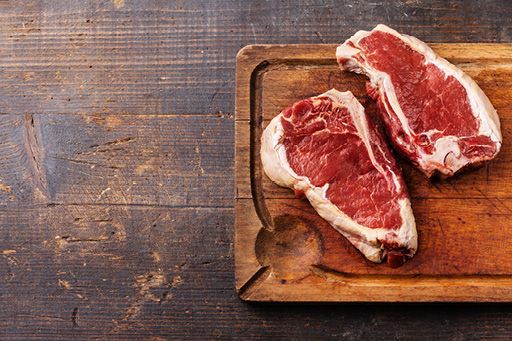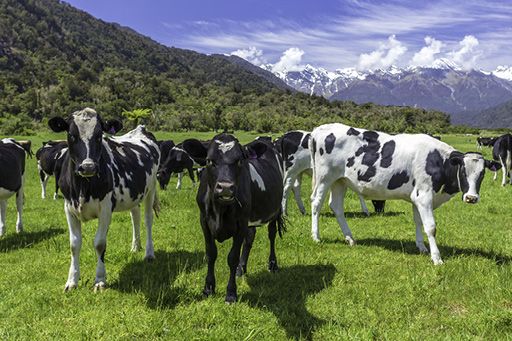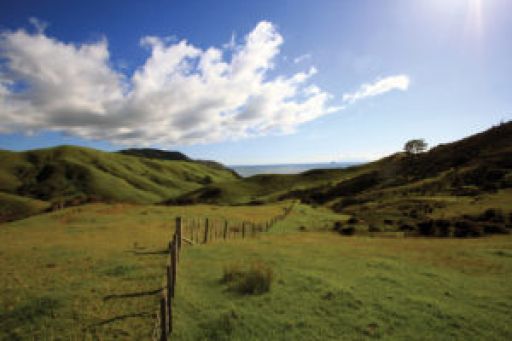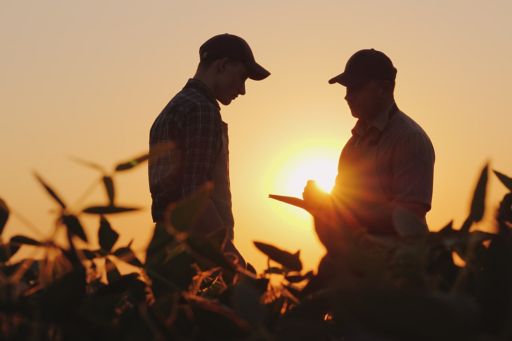Week in Review
[1 April 2021]
Food waste is our theme of the past seven days, with New Zealand hosting both a food waste symposium and discussion series over the past week, this timing in with the release of the United Nations Food Waste Index report measuring global food waste volumes to have reached 931 million tonnes.
Red meat also hits headlines as our New Zealand lamb sees strong pricing, at the same time as international research in the US shows a 19.2% red meat sales surge for 2020 despite more consumers stating they are reducing meat consumption.
Previous issues
To read previous editions of Field Notes please click here.
Spotlight Stories
Alternative Proteins Spotlight

‘Alternative’ proteins could account for 11% of global protein market by 2035, predicts report [24 March, Food Navigator]
According to a new report from Boston Consulting Group, every tenth portion of meat, eggs and dairy eaten around the globe is highly likely to be alternative by 2035. The report states that to reach 22% of alternative proteins, by 2035, the following must occur: increase in consumer and investor interest in sustainability, achieving parity with animal proteins on taste, texture and price, achieving step changes in technology and securing regulatory support to speed up a transition from animal agriculture to alternative-protein inputs.
Tag: Alternative Proteins, Food Innovation
Red Meat Spotlight

Website launched to ensure Kiwis get the facts about red meat - B+LNZ [30 March, Voxy]
The “making meat better” website makes it easier for New Zealanders to have access to facts about the production and consumption of beef and lamb in New Zealand. A lot of information about red meat production is based on international research and overseas farming systems. So this new website showcases the real facts about how meat in New Zealand is produced and what it means for people’s health and the health of the environment.
Tag: Red Meat, Education, Food Marketing
This Week's Headlines

A bottle of wine was blasted into space. Here's what it tastes like now [26 March, CNN]
French wine connoisseurs became the first to sample and review wine and grapevines that spent a year in space. One out of the 12 wine bottles that got sent out were tasted. Wine writer, Jane Anson, said she felt a difference in both colour and aromatics as it felt a little bit older and the cosmic wine’s tannins were more evolved. Scientists will compare the vines to specimens that remained on Earth, aiming to adapt vines to grow in harsher environments
Tag: Food Innovation, International

Meat sales at retail surge despite rise of plant-based options and fewer consumers identifying as meat-eaters [30 March, Food Navigator]
According to an analysis by the Meat Institute Foundation and FMI, United States’ sales and consumption of meat increased in 2020 despite a drop in meat-eaters. Much of the increase is due to a switch in eating habits during the pandemic; consuming more food at home rather than buying food on the go. According to the report, 43% of shoppers bought more meat and poultry whilst 19% of consumers describe themselves as “flexitarians” and 34% say they want to reduce their meat and poultry consumption.
Tag: International, Red Meat, Covid-19

The world’s food waste problem is bigger than we thought - here’s what we can do about it [26 March, World Economic Forum]
According to a United Nations report, around 931 million tonnes of food goes to waste each year in which 61% comes from households, 26% from food service and 13% from retail. The UN Sustainable Development Goals aim to halve food waste by 2030 as waste management systems contribute significantly to the global problems of climate change, biodiversity loss and pollution. Reducing waste could result in social, economic and environmental benefits.
Tag: Environment & Emissions, International
Top stories
This simple solution will keep fruit fresh for longer - and help avoid food waste [25 March, World Economic Forum]
StixFresh’s new invention of a natural sticker will lengthen the shelf life of fresh fruit by an extra two weeks, thus reducing food waste. Natural ingredients are used to replicate the antimicrobial compounds that plants use to protect themselves against post-harvest diseases. The stickers are most effective on apples, avocados, citrus, fruits and mangoes but are currently being developed to be effective on berries and vegetables as well.
Tag: Environment & Emissions, International, Research & Development
Upcycling food waste into a biobased plastic alternative [23 March, Food Navigator]
US-based MiTerro developed new technology which uses milk wastage to create plastic-alternative biomaterials for sustainable fabric and packaging. According to the CEO of MiTerro, Robert Luo, “the new packaging material has attracted a lot of attention because European laws require companies to abandon non-biodegradable or non-compostable plastic.” Additionally, the product is stated to be gaining lots of traction as consumers seek more plant-based products and demand socially-conscious brands.
Tag: Research & Development, Environment & Emission
Fears after parasite, Bonamia ostreae, found in wild oysters [26 March, NZ Herald]
An ‘industry-ending’ parasite (bonamia ostreae) has been found in three wild oysters in the Foveaux Straight, near Stewart Island, and protocols have been put in place to prevent any further spread. Biosecurity New Zealand found no infection in five sample sites and will begin further testing of the oysters. The parasite was first found in New Zealand in 2015 in oysters from the Marlborough Sounds and then again in 2017 in Big Glory Bay in Stewart Island.
Tag: Biosecurity, Aquaculture, Fisheries
HortNZ backs Biosecurity Amendment Bill [26 March, Rural News Group]
New Zealand’s horticulture and other primary industries may have extra confidence in their industry as the biosecurity amendment bill was drawn from the private member’s ballet. The bill will potentially amend the Biosecurity Act 1993 to require all aircrafts entering New Zealand to provide biosecurity information to people onboard both by video and writing. "When the border re-opens, it will be important to remind travellers of the need to be particularly vigilant when entering New Zealand" says Horticulture NZ chief executive, Mike Chapman.
Tag: Biosecurity, Horticulture, Policy and Regulation
Trees potential extra earner for farmers [26 March, Farmers Weekly]
A Farms, Trees and Carbon workshop for Beef + Lamb NZ outlined that farmers may be missing out on potential new income streams from its land-use and registration of the Emissions Trading Scheme (ETS). Forest360 Masterton team leader, Michelle McCabe, said that almost all types of on-farm plantings can be designed to fit within the ETS forest land definition – creating a possible extra earner from carbon credits. ETS farmers can potentially sell their credits or hold the credits to potentially increase their market price.
Tag: Forestry, Environment & Emissions
SWAG set sights on US market [26 March, Farmers Weekly]
The Strong Wool Action Group (SWAG) is undergoing a nine-week project with San Francisco-based design-led company, IDEO, to understand the demand of wool consumers and anticipate their future needs. “The plan is to uncover consumers’ pain points and develop a solution in a strong wool demand-driven strategy” SWAG chief executive, Andy Caughey, said. America is the initial focus as it is where 45% of the world’s carpet manufacturing capability is.
Tag: Wool
UK trade talks going nowhere, slowly [26 March, Farmers Weekly]
The British Parliament received the Trade and Agriculture Commission’s report earlier this month, however British Trade Minister, Liz Truss, has yet to formally respond to its recommendations. There are a total of 22 recommendations which includes ditching high tariffs on agricultural products from countries which meet the same environmental animal welfare standards as British farmers. Britain’s farmers were represented on the commission by the English, Welsh and Scottish branches of the UK’s peak farming lobby and several other farmer bodies.
Tag: Trade & Exports, Policy and Regulation
Westland set to boost production [25 March, Farmers Weekly]
Westland Milk’s new NZ$40 million project aims to double the capacity of its consumer butter manufacturing with butter plant churn and palletising upgrades, and new packaging lines. The company is moving from a supplier of mostly bulk commodities to play a greater role in the production of consumer goods. “This will offer greater quality control and production efficiencies” Westland chief operating officer, Richard Hickson said. The plant upgrade construction and installation is expected to start before Westland’s annual winter shutdown in May.
Tag: Agribusiness, Dairy
Potato growers feeling the heat as foreign frozen fries flood the market [28 March, Stuff]
Potatoes New Zealand are seeking government action to protect NZ potato farmers as Europe’s cheaper imported frozen fries compete with NZ’s frozen fries. Potatoes NZ chief executive, Chris Claridge, said “I don’t think anyone has any issue with competing, but when that competition doesn't reflect the full cost of producing the product, then it has to be unfair competition.” Europeans were said to be selling below cost of production due to subsidies, making it very difficult for New Zealand farmers to be competitive in the local market.
Tag: Horticulture, Trade & Exports, Covid-19
Concerns for domestic organic industry, as MPI accused of 'not listening' [27 March, Stuff]
Proposed legislation could result in MPI controlling the final approval needed for their organic certification, duplicating the certification process and adding extra costs according to some in the organic industry. “It poses risks around cost increases that the domestic industry will struggle to bear. We think MPI have misunderstood what is required here, and are failing to listen to feedback” said Soil and Health Association general manager, Pete Huggins. It is stated that the price of organic products could become more expensive as cost of production potentially increases.
Tag: Policy and Regulation
Asian meat substitutes give food for thought [29 March, Stuff]
Executive director of the Asia New Zealand Foundation Te Whītau Tūhono, Simon Draper, claims that Asia has the front step on food revolution. The growing middle class across the Asia region encourages food technology and the Covid-19 wellness trends set up the industry to be transformed. Currently, Singapore has produced lobster and shrimp meat in the lab, Vietnam’s insect protein is growing as an eco-friendly protein alternative and KFC in China’s major cities are already selling vegan nuggets.
Tag: Alternative Proteins, Food Innovation, International
Plant-based food start-up Eat Just receives $200 million investment led by Qatar [25 March, CNBC]
The San Francisco-based company, Eat Just, has raised US$200,000 million from the sovereign wealth fund of the State of Qatar and will further develop their well-known plant-based food products. The funds will be used to further scale the company’s manufacturing operations, expand into additional markets where regulatory approval is needed, and lower costs by investing in technology. Last December, the company launched their chicken replacement meat in Singapore and their most-popular product, JUST Egg, has been sold at the equivalent of 100 million chicken eggs.
Tag: Alternative Proteins, International, Agribusiness
China locks in five more years of tariffs on Australian wine industry [26 March, ABC News]
Australia’s AU$1 billion wine industry is expecting Beijing to impose tariffs of almost 220% for the next five years due to an “anti-dumping measure”. This will result in Australia making a World Trade Organisation dispute. The Australian wine imports last year had interim tariffs of up to 200% which are most likely to be extended and increased. Historically, Australian winemakers are alleged to have sold wine below the cost of production due to imposed subsidies.
Tag: Trade & Exports, Viticulture, International
Seaspiracy film assails fishing and aquaculture sectors that seem ready for a good fight [26 March, Global Aquaculture Alliance]
A documentary-styled film, Seaspiracy, was released on Netflix with the intent to shock and deter people from eating fish, however, some have labelled it as propaganda. Many claims were made to dismiss aquaculture which include: ‘the oceans will have no fish in 27 years’, and ‘farmed salmon are raised in lice-plagued waters’. Gavin Gibbons, vice president at NFI, said the producer entered the process with the intent of convincing an audience not to eat seafood, and uses outdated or discredited science.
Tag: Fisheries, Aquaculture
Smith to push for more automation in the hort sector [24 March, Rural News]
Ministry for Primary Industries director general, Ray Smith, is pushing for increased automation in orchards. This aims to help with the labour shortage as there is growth and potential for more automated production systems in the horticulture industry. Smith says menial tasks such as pruning should be automated to ease the labour shortage during tough winter seasons. "Too much of the horticultural industry has been built off the back of immigrant labour and the risk of that is what we see now" Smith says.
Tag: Horticulture, Research & Development
Lamb pricing on strong footing [26 March, Farmers Weekly]
Lamb is trading at steady prices of NZ$7.30-$7.80 during May-June despite logistical challenges and the apparent effects of Covid-19 in some markets. “We don’t normally see a jump of $1.30/kg from prices in late March-early April for contracts in May-June,” AgriHQ senior analyst, Mel Croad said. The reason why lamb prices are high is unclear, but Croad says it could be due to more structured and stable pricing in the retail sector and the performance of exporters in selling such product.
Tag: Trade & Exports, Agribusiness
PULSE: Lamb trumps beef in China [26 March, Farmers Weekly]
New Zealand’s lamb and mutton exports are growing due to an improvement in China’s market conditions as well as a protein shortage from Swine Fever outbreaks in China. China absorbs 50% of NZ’s lamb exports and 76% of mutton exports but only 36% of beef exports. The beef market has many large market players, including Brazil and Argentina. They dominate the Chinese beef market through their ability to provide consistently high volumes of beef, often at cheaper prices.
Tag: International, Red Meat, Trade & Exports
Government supports new programme to lead New Zealand’s plant protein sector development [30 March, Behive]
The Ministry for Primary Industries is contributing NZ$20 million through its Sustainable Food & Fibre Futures fund to a research and development programme run by Leaft Foods. It aims to develop technology that extracts edible protein from New Zealand grown leafy crops. The investment has potential to put New Zealand in a good position as “a growing number of global food manufacturers and consumers are demanding that their proteins come from a sustainable source,” said Agriculture Minister, Damien O’Connor.
Tag: Alternative Proteins, Policy and Regulation
Hui across the country to help Māori protect Mānuka honey [30 March, Te Ao Māori News]
An Australian tea tree with similarities to New Zealand’s native mānuka is being used by Australian marketers in an attempt to market their products as Mānuka honey. Last year in July, the Mānuka Honey Appellation Society filed the application for certification trademark to prevent this occurring. Trust chair, Victor Goldsmith said, “We were successful in 2018. So the United Kingdom Intellectual Property Office made the ruling that mānuka was a Māori word and that Mānuka can only come from honey producers in New Zealand. The Australians promptly objected to that.”
Tag: Apiculture
WorkSafe concerned following rapid rise in fruit picking injuries [30 March, One News]
Fruit picking injuries have increased by over 50% in the last three years as labourers try to keep up with the strong demand. Growth in the horticulture industry comes with increased pressure to get the work done, and is believed to result in a higher rate of worker injuries. Injury risks are being identified in apple orchards in Hawke’s Bay and technology is being seen as a possible solution to solve the problem.
Tag: Horticulture, Health and Safety
More than 2600 people come off benefits to do seasonal work [31 March, Stuff]
More than 2600 people came off their benefits to do seasonal fruit picking work and 195 of them took on incentives from the government work scheme – providing relief to the industry. Yummy Fruit Owner, Paul Paynter, says the biggest hindrance to finding pickers in Hawke’s Bay is the lack of housing; “It's really held people back. I’ve had conversations with many about the poor quality of accommodation, or the fact they can’t get accommodation at all,” Paynter said.
Tag: Horticulture
Holy Cow’s beef rinds upcycle cattle hides for a nutrient-dense, sustainable & economically stimulating snack [30 March, Food Navigator]
A start-up, Holy Cow, developed a new beef rind snack using upcycled cow skin to create a nutrient-dense, ‘better-for-you’ snack. The founders saw an opportunity to create a new revenue source for ranchers and reduce gas emissions as thousands of cow hides were thrown away daily due to rising demand for beef and a drop in leather production. The start-up aims to inspire healthy eating habits, support small businesses and support sustainable, earth-friendly practices.
Tag: International, Food Marketing, Red Meat
Why Mars is betting on personalised nutrition for the masses [29 March, Food Navigator]
Mars Edge aims to support human nutritional health with the company’s efforts to “reconcile the food we want with the nutrition we need”. Mars Edge acquired a majority stake in Foodspring (a direct-to-consumer targeted nutrition company) and created a nutritional supplement called CocoaVia which is based on Mars’ 20-year research on cocoa flavanols to aid cognition and heart health. The company strives to develop their research and development to offer “better lives through nutrition.”
Tag: International, Food Marketing
‘Processed food’ is not inherently unhealthy: ‘These concepts need to be dissociated’ [30 March, Food Navigator]
A new study argues that current food classification systems for “processed food” can be misleading as it is invalid to assume that processed means unhealthy. Christina Sadler, Manager at EUFIC said, “Currently terms surrounding processed foods are not consistently defined and can mean different things to different people, limiting how these terms can then be used effectively in policies or advice.” Researchers found that most classification criteria are not aligned with existing scientific evidence on nutrition and food processing.
Tag: Food Marketing
Get in touch
| Audit – Auckland Ian Proudfoot 09 367 5882 iproudfoot@kpmg.co.nz |
Management Consulting – Wellington Justine Fitzmaurice 04 816 4845 jfitzmaurice@kpmg.co.nz |
Agri-Food – Auckland Jack Keeys 09 363 3502 jkeeys@kpmg.co.nz |
Private Enterprise – Hamilton Hamish McDonald 07 858 6519 hamishmcdonald@kpmg.co.nz |
| Agri-Food – Auckland Andrew Watene 09 367 5969 awatene@kpmg.co.nz |
Consultant – South Island Genevieve Steven 03 307 0761 gsteven@kpmg.co.nz |
Farm Enterprise – South Island |
Field Notes Administrator |




